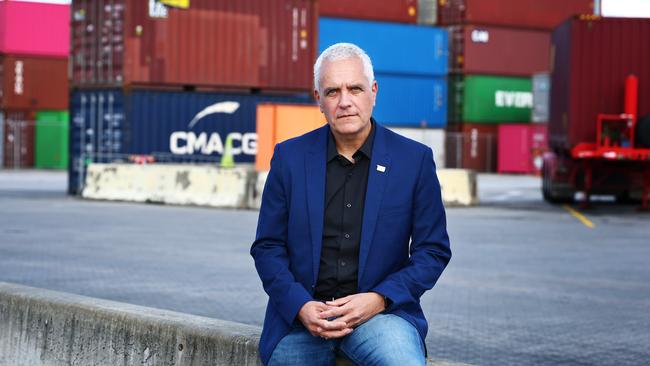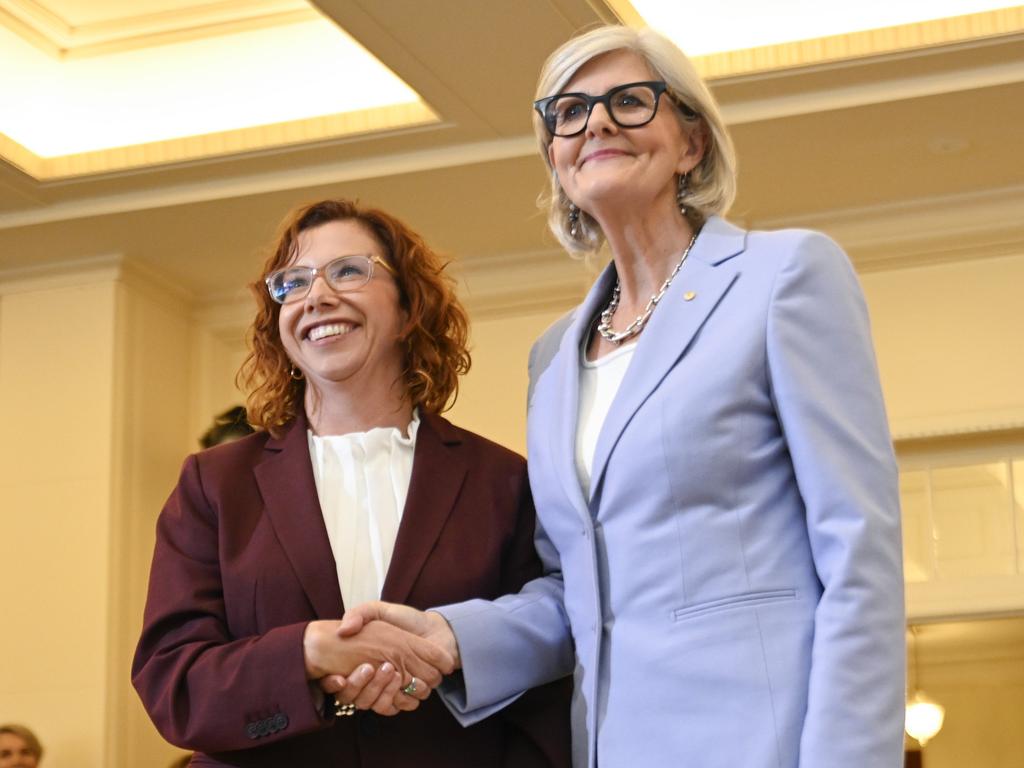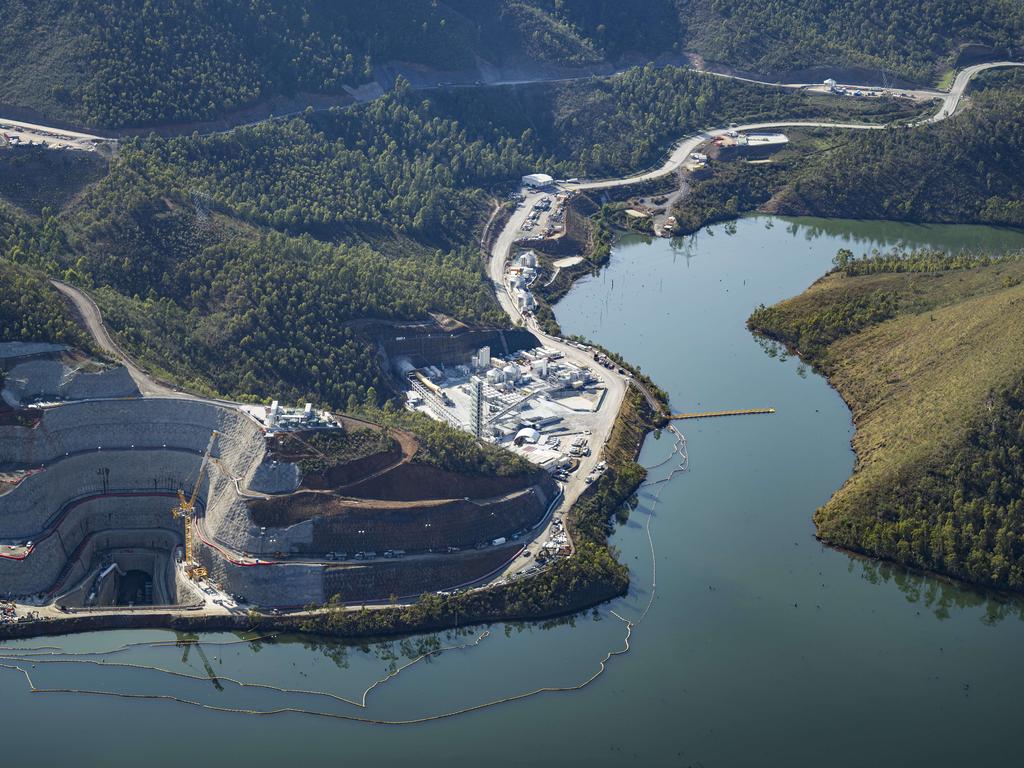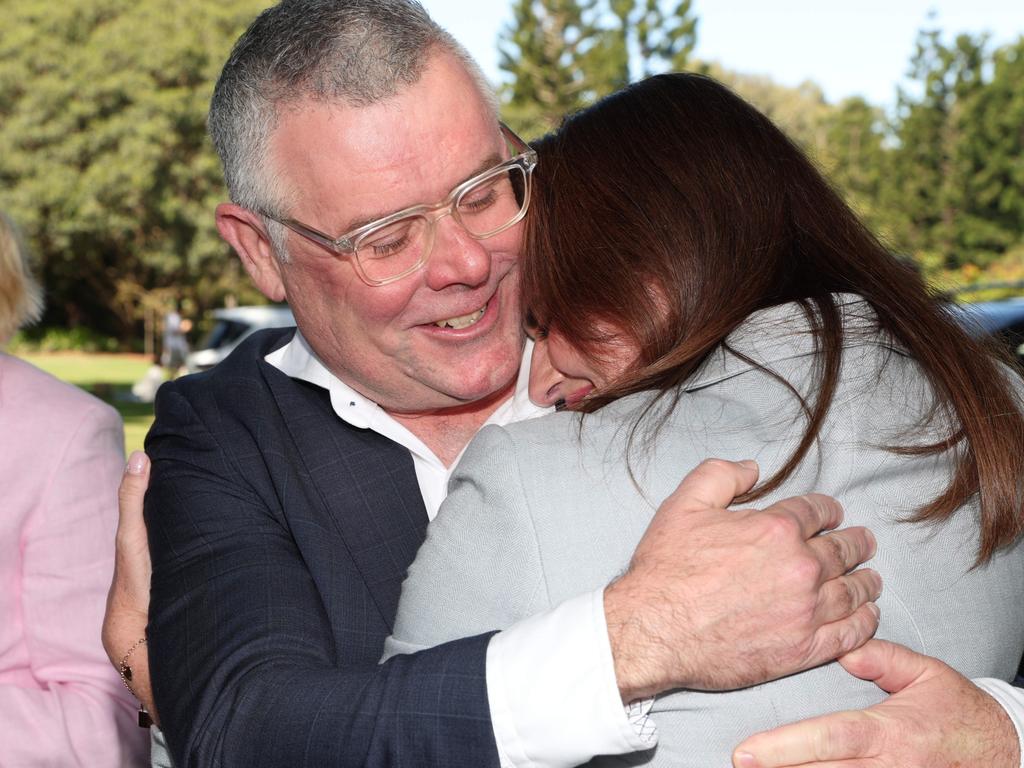Transport Workers Union threat to ‘shut down Australian transport’
The Transport Workers Union has seized on Labor’s election win to pursue the ‘largest co-ordinated industrial campaign in Australian transport history’ as enterprise agreements expire.

Union leader Michael Kaine has warned his members are prepared to “shut down Australian transport”, including airline flights, declaring that the union must seize on Labor’s landslide election victory to pursue the “largest co-ordinated industrial campaign in the sector’s history.
Promising significant disruption if employers did not bow to demands for higher pay and better conditions, Mr Kaine said the Transport Workers’ Union had spent eight years carefully orchestrating the simultaneous expiry of 200 enterprise agreements in 2026 to maximise the bargaining power of thousands of workers to take legal industrial action at the same time across the critical aviation and transport sectors.
Companies to be targeted by the union include Qantas, Aldi, Amazon and Qube Logistics, with agreements also due to expire in mid-2026 at an array of major companies such as Linfox, Toll, Virgin Australia, Boral, K&S Freighters and national garbage collector Cleanaway.
“We are all celebrating Labor’s stunning re-election, but we must also seize the moment,” Mr Kaine said.
He claimed voters had “rejected divisive tactics and endorsed a vision of higher wages, secure jobs and a central and very legitimate role for unions in the Australian economy”.
“This is why Labor was rewarded with a decisive mandate,” he said.
Mr Kaine said that if companies were not prepared to end destructive practices that caused death and carnage on the roads and fund fair standards to ensure workers went home safely, “we are prepared to shut down Australian transport”.
“From airports to highways, from distribution centres to city streets, whatever it takes to stop the client pressure killing workers, community members and good businesses,” he said.
He said the TWU had for decades used the legal right to take protected industrial action “to move the dial on improving lives for transport workers”.
“Now the time has arrived to significantly shift that dial yet again,” he said.
“So let me be abundantly clear: without significant movement to ensure we have good, safe jobs in transport and aviation, there will be disruption, it will be significant, it will be co-ordinated, and it will be effective.”
The TWU national secretary’s extraordinary comments are contained in a speech he will deliver to the union’s national conference next Wednesday. In a separate interview with The Australian, Mr Kaine explicitly warned workers were prepared to take action that could ground domestic airline flights.
“It’s not the objective to ground flights but it might be the consequence if Qantas, for example, continues to stream work to companies where our workers are literally losing limbs, are literally under massive pressures, can’t get a job that’s permanent and are doing two to three jobs to make a living,” he said.
Mr Kaine contrasted the “positive militancy” of the TWU with the scandal-plagued CFMEU construction division that was put into administration last year. “Our purpose is to recast what strong unionism is,” he said.
“This notion of militancy has been given a now polluted name by what has occurred in the CFMEU, but militancy is not necessarily a bad thing. You can have positive militancy.”
Outlining the “four crucial parts” of the TWU claim, Mr Kaine said the nation’s airports must implement meaningful safety regulations and fair employment standards.
“Airports are not just pieces of infrastructure; they’re vital economic hubs that employ thousands of workers,” he said. “They make billions while safety standards are plummeting.”
He said airlines must be held accountable for the conditions of workers contracted to service their operations, and “the practice of outsourcing to the lowest bidder without regard for safety or working conditions must end”.
He renewed the union’s call for the Albanese government to set up a safe and secure skies commission to oversee the aviation industry, and create industry-wide standards to “prevent the destructive race to the bottom we’re currently witnessing”.
The TWU also wants a thorough review of the Civil Aviation Safety Authority, calling for regulators to be given the resources, authority, and mandate to enforce safety standards across the industry. “This isn’t aspiration; it’s a practical blueprint for an industry where standards for both passengers and workers take precedence,” Mr Kaine said.
“There’s no reason Australia can’t lead the world in creating an aviation industry that serves more than executives and shareholders. It must, must fan out to the needs of workers, passengers, and the broader economy.”
The TWU has spent years lining up the timing of enterprise agreements to maximise the collective bargaining power of workers and their capacity to use legal industrial action to press their claims. “By 2026, we will bring together over 200 enterprise agreements expiring simultaneously,” Mr Kaine said.
“Some might even call it the moment in time for our union. Make no mistake – this will be the largest co-ordinated industrial campaign in Australian transport history. This alignment of agreements isn’t accidental. It’s been carefully orchestrated to maximise our collective bargaining power. When workers across the transport industry negotiate together, when they stand together, they can achieve outcomes that would be impossible in isolation.
“To those industry players who believe they can continue exploiting transport workers: reconsider your position. You’re about to encounter unprecedented solidarity and determination from this workforce.”
He said disruption was not the union’s goal but “a means to an end”. “We must have an industry where workers stop dying, where they receive fair pay, in short, where standards aren’t constantly undermined by ruthless, profiteering cost-cutting,” he said.
Asked to comment on Mr Kaine’s warning that union members were prepared to shut down the nation’s transport, Employment and Workplace Relations Minister Amanda Rishworth said: “While we support the rights of workers to take protected action, the general rate of industrial disputes remains low compared to historical trends.
“Under the Albanese government, on average around 2.2 working days have been lost per 1000 employees, compared to an average of 2.4 working days per 1000 employees under the former Coalition government.”








To join the conversation, please log in. Don't have an account? Register
Join the conversation, you are commenting as Logout